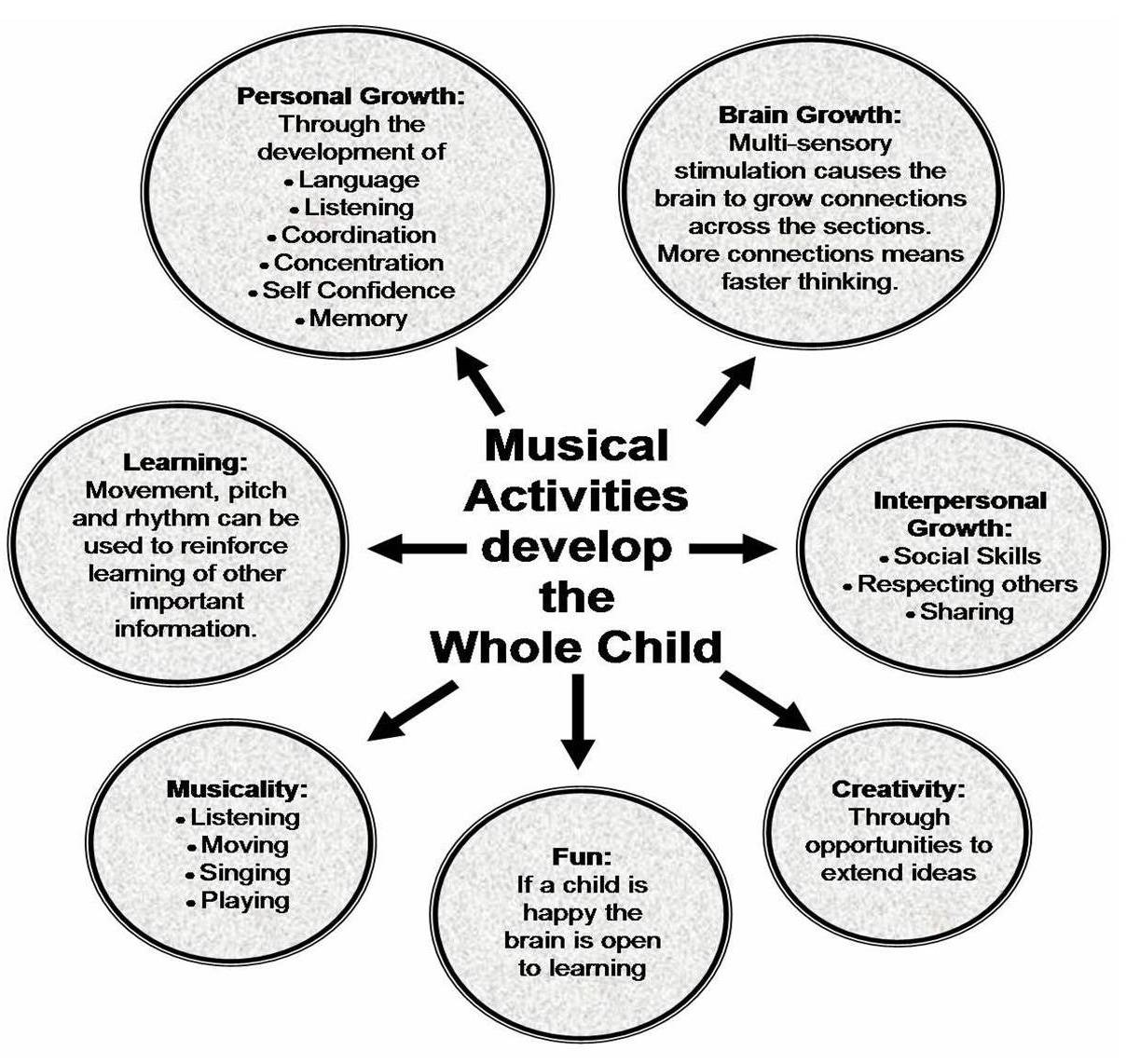 Musical training has recently gained additional interest in education as increasing neuroscientific research demonstrates its positive effects on brain development. Neuroimaging revealed plastic changes in the brains of adult musicians but it is still unclear to what extent they are the product of intensive music training rather than of other factors, such as preexisting biological markers of musicality. In this review, we synthesize a large body of studies demonstrating that benefits of musical training extend beyond the skills it directly aims to train and last well into adulthood. For example, children who undergo musical training have better verbal memory, second language pronunciation accuracy, reading ability and executive functions. Learning to play an instrument as a child may even predict academic performance and IQ in young adulthood. The degree of observed structural and functional adaptation in the brain correlates with intensity and duration of practice. Importantly, the effects on cognitive development depend on the timing of musical initiation due to sensitive periods during development, as well as on several other modulating variables. Notably, we point to motivation, reward and social context of musical education, which are important yet neglected factors affecting the long-term benefits of musical training. Further, we introduce the notion of rhythmic entrainment and suggest that it may represent a mechanism supporting learning and development of executive functions. It also hones temporal processing and orienting of attention in time that may underlie enhancements observed in reading and verbal memory. We conclude that musical training uniquely engenders near and far transfer effects, preparing a foundation for a range of skills, and thus fostering cognitive development.
Musical training has recently gained additional interest in education as increasing neuroscientific research demonstrates its positive effects on brain development. Neuroimaging revealed plastic changes in the brains of adult musicians but it is still unclear to what extent they are the product of intensive music training rather than of other factors, such as preexisting biological markers of musicality. In this review, we synthesize a large body of studies demonstrating that benefits of musical training extend beyond the skills it directly aims to train and last well into adulthood. For example, children who undergo musical training have better verbal memory, second language pronunciation accuracy, reading ability and executive functions. Learning to play an instrument as a child may even predict academic performance and IQ in young adulthood. The degree of observed structural and functional adaptation in the brain correlates with intensity and duration of practice. Importantly, the effects on cognitive development depend on the timing of musical initiation due to sensitive periods during development, as well as on several other modulating variables. Notably, we point to motivation, reward and social context of musical education, which are important yet neglected factors affecting the long-term benefits of musical training. Further, we introduce the notion of rhythmic entrainment and suggest that it may represent a mechanism supporting learning and development of executive functions. It also hones temporal processing and orienting of attention in time that may underlie enhancements observed in reading and verbal memory. We conclude that musical training uniquely engenders near and far transfer effects, preparing a foundation for a range of skills, and thus fostering cognitive development.
Psychological and neuroscientific research demonstrates that musical training in children is associated with heightening of sound sensitivity as well as enhancement in verbal abilities and general reasoning skills. Studies in the domain of auditory cognitive neuroscience have begun revealing the functional and structural brain plasticity underlying these effects. Music training correlates with plastic changes in auditory, motor, and sensorimotor integration areas.
Correlational and interventional studies of children undergoing music training consistently show that they perform better in the areas closely associated with music: fine motor skill, rhythm perception and auditory discrimination. There is also strong evidence for near-transfer effects of these abilities to phoneme discrimination, as well as far-transfer effects to vocabulary, and non-verbal reasoning subsets of general intelligence tests. While near-transfer effects (transfer to tasks within the same domain) are often observed with various training programs, such as computerized executive function training (attention, working memory and task-switching) (Diamond and Lee, 2011; Jolles and Crone, 2012), far-transfer is notoriously difficult to induce and has been observed only after demanding multi-skills training such as action video games (Bavelier et al., 2010; Green and Bavelier, 2012). The reports we review in this section show that musical training also brings about promising far-transfer effects in domains such as verbal intelligence and executive functions, and may even lead to better general academic performance.
Source : http://www.ncbi.nlm.nih.gov/pmc/articles/PMC3957486/

